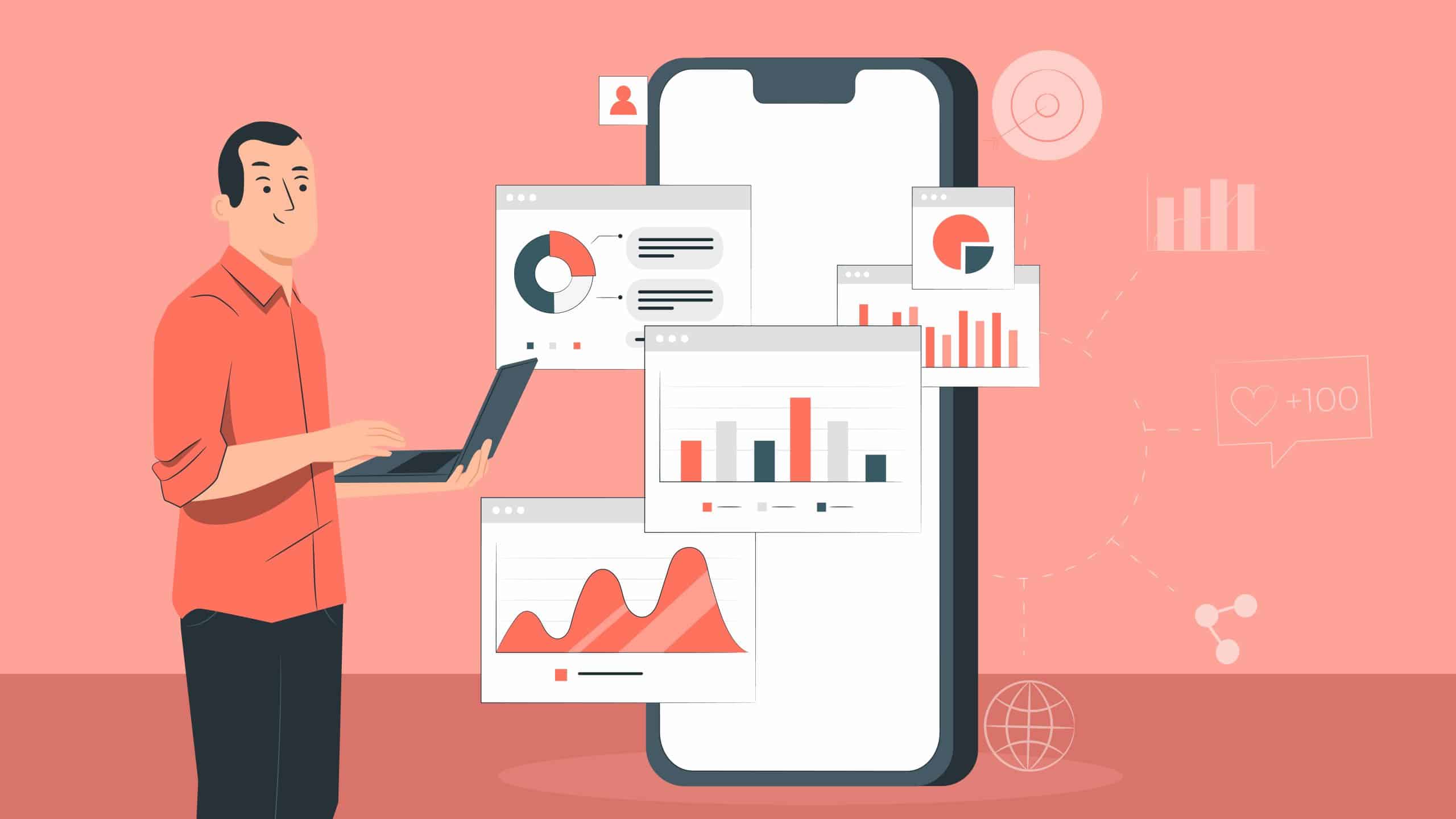Mobile App Performance Testing Services: Ensuring Optimal UX

- June 16, 2023
- admin
In the modern digital age, mobile applications have become an integral part of our daily life. Mobile apps play an important role in providing services to users, whether for communication, entertainment, or productivity. From e-commerce to social media, gaming to banking, there is an app for practically everything. However, with the increasing complexity of mobile app development and the multitude of devices and platforms available, ensuring an optimal user experience has become a challenging task. Performance testing services are useful in this situation.
In this post, we’ll look at the importance of mobile app performance testing and how it may help you create a better user experience.
What is Mobile App Performance Testing
The practice of reviewing and measuring the performance of a mobile application to verify that it performs optimally under diverse scenarios is known as mobile app performance testing. It helps identify potential issues that may hinder the user experience, such as:
- Slow response times
- Crashes
- Excessive resource usage
By conducting comprehensive performance testing, app developers can proactively address these issues and provide users with a seamless and enjoyable experience.
Key Metrics for Mobile App Performance Testing Services
Several important factors should be examined while testing mobile app performance. These metrics help discover opportunities for improvement by giving information about the performance of the app. The key metrics for mobile app performance testing include:
Response Time
This metric measures how quickly the software reacts to user input. A faster response time indicates a more responsive app, enhancing the user experience.
Resource Usage
Monitoring the app’s resource usage is crucial to ensuring it operates efficiently without draining the device’s battery or causing performance degradation. This includes tracking the following:
- CPU
- Memory
- Battery consumption
Network Performance
Because mobile apps rely on network access to function, network performance is an important consideration. Evaluating how the app performs under different network conditions, such as Wi-Fi, 4G, or 5G, helps ensure a consistent user experience regardless of the network environment.
App Launch Time
The time it takes for an app to launch from the home screen is an important metric. Users expect apps to load quickly, and a long app launch time can lead to frustration and abandonment.
Screen Transitions
Smooth and seamless screen transitions contribute to a positive user experience. This metric evaluates the app’s ability to navigate between screens without delays or visual glitches.
Error Handling
A well-designed app should handle errors and exceptions gracefully. This metric assesses how the app responds to errors, such as displaying appropriate error messages and recovering without crashing.
Types of Mobile App Performance Testing Services
Different sorts of mobile app testing should be performed to ensure a thorough review of the app’s performance. These types help assess various aspects of the app’s performance and user experience. The four common types of mobile app performance testing are:
Load Testing
Load testing involves evaluating how well the app performs under normal and peak load conditions. It simulates a high number of concurrent users or requests to determine the app’s stability, responsiveness, and resource usage. Load testing helps identify any performance bottlenecks that may arise when the app is under heavy usage.
Stress Testing Services
By putting the app under extreme circumstances, stress testing pushes it to its breaking point. It tests the app’s performance beyond its expected capacity, simulating scenarios with a large number of users or extensive data processing. By doing so, stress testing helps identify the breaking point of the app, revealing any weaknesses or vulnerabilities that may impact its performance or stability.
Performance Testing Services
Performance testing focuses on assessing the overall performance of the app. It measures the app’s response time, resource consumption, and scalability. Performance testing helps ensure that the app meets the performance expectations of its users and performs efficiently under normal conditions.
Usability Testing Services
Testing for usability determines how user-friendly the software is. It evaluates how simple it is for users to use the app, finish their jobs, and accomplish their objectives. Usability testing helps identify any usability issues that may affect the user experience, such as confusing layouts, non-intuitive interactions, or difficulties in finding desired features.
Tools for Mobile App Performance Testing Services
Mobile app performance testing can be aided by a variety of solutions that are readily available on the market. These tools provide functionalities for measuring performance, analyzing data, and automating the testing process. Some popular tools for mobile app performance testing include:
Apache JMeter
A commonly used open-source tool for assessing the effectiveness of web applications and performing load tests. It provides features for simulating concurrent users and generating performance reports.
Firebase Test Lab
A Google cloud-based testing tool for iOS and Android apps. It provides a variety of devices and configurations for testing, along with performance monitoring and crash reporting.
Xcode Instruments
A suite of tools provided by Apple for performance testing iOS apps. It includes features for measuring app performance, analyzing energy usage, and debugging performance issues.
Gatling
A performance and scalability-focused open-source load testing tool. It allows for scripting performance scenarios and generating detailed performance reports.
Challenges in Mobile App Performance Testing Services
Mobile app performance testing presents certain challenges that need to be addressed for effective testing and optimization. These challenges include:
Device Fragmentation
With a wide range of devices, operating systems, and screen sizes available on the market, ensuring consistent performance across all platforms can be challenging. Testing the app on a diverse set of devices becomes crucial to identifying any device-specific performance issues.
Network Variability
Mobile apps are used in diverse network conditions, ranging from high-speed Wi-Fi to slow and unreliable cellular networks. To make sure the app performs well in various real-world circumstances, it is tested for performance under varied network conditions.
Real-World Scenarios
Simulating real-world scenarios accurately can be complex, as user behavior can vary widely. Capturing and replicating user actions, network fluctuations, and device interactions require careful consideration during the testing process.
Test Environment Setup
Setting up and maintaining a comprehensive test environment that mirrors real-world conditions can be time-consuming and resource-intensive. It requires a range of devices, network configurations, and software versions to ensure accurate testing and evaluation.
Why are Performance Testing Services Important?
Mobile app performance testing plays a vital role in ensuring optimal user experiences. By conducting comprehensive performance testing and addressing potential issues, developers can optimize their apps for speed, responsiveness, and stability. With the ever-increasing demand for high-quality mobile apps, investing in mobile app performance testing services is crucial for businesses to deliver optimal user experiences and stay ahead in the competitive market.











